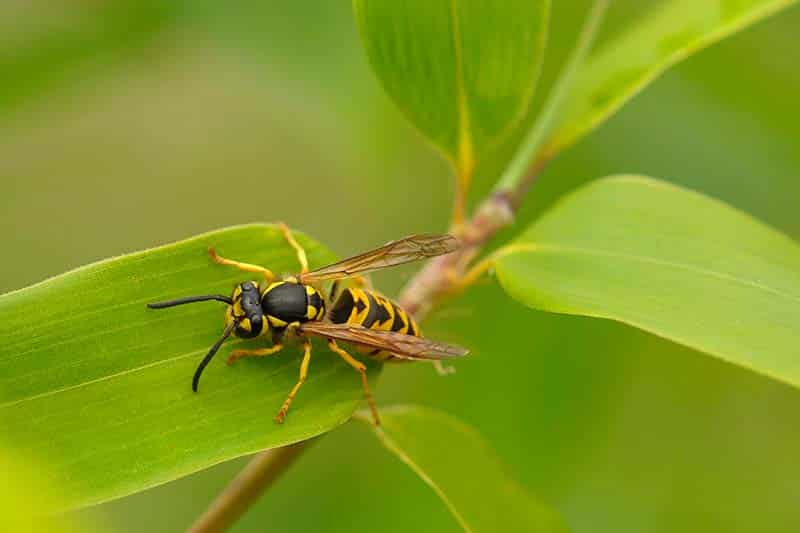Hymenoptera (bees and wasps) stings are triggered during the hottest months of the year. Although the tingling is very bothersome, the symptoms they produce are not serious in most cases.
However, care must be taken because allergy to the venom of these insects can take the form of anaphylaxis (severe and systemic or generalized allergic reaction). Allergists have seen a 20% increase in severe allergic reactions to wasp and bee venom over the past 10 years.
It is estimated that about 3% of the population suffers from generalized allergic reactions to Hymenoptera venom, but mortality is low.
Summary
How to avoid stings?
The French Society of Allergology and Clinical Immunology (Seaic) offers the following advice to prevent bees and wasps from stinging us. Remember that wasps only attack to defend themselves and protect their nests or hives.
– If a Wasp lands on your body, it is best not to scare it or try to kill it.
– Do not make sudden movements if bees or wasps are nearby.
– Avoid eating out, especially fruit.
– Do not approach fruit trees, flowers, wasp nests, beehives or garbage.
– Shake out your clothes before getting dressed, as there may be wasps between the folds.
– Cover your body with clothes in subdued colors and do not go barefoot.
– Check that there are no bees or wasps perched on your food or drinks.
– Avoid using perfumes or hair sprays as strong smells attract insects.
Differences between bee and wasp stings
Hymenoptera are a group of insects characterized by four membranous wings and a complex social organization. In recent years, an invasive species of bees and wasps has been added: the Asian wasp (Vespa velutina), which has spread to different European territories.
Victor Matheu, from the North Allergology Unit of the University Hospital of the Canaries, in Santa Cruz de Tenerife, explains the main differential characteristic of Hymenoptera stings: « The bees leave the stinger at the site of the sting and die. Wasps and bumblebees, on the other hand, do not leave stings. »
The bites of these insects are characterized by the inoculation of their respective poisons. “Bee and wasp poisons are higher in protein, so they have a greater risk of producing reactions if the affected person is allergic,” adds the allergist.
How to tell the difference between a normal sting and an allergic reaction?
In the case of a bee or wasp sting, it is normal to see a lesion where it occurred, with erythema (redness or rash) and inflammation several centimeters in diameter, as well as severe pain and itching.
It could be a serious allergic reaction and you should go to the nearest emergency room or call 112 if the following symptoms or warning signs are present:
Hives, swelling or itching in areas of the body away from the bite site.
– Difficulty breathing or swallowing.
– Dizziness, blurred vision.
– Intestinal symptoms.
Guidelines depending on the severity of the reaction
Recommendations for action vary depending on the type of reaction that occurs after the bite: normal allergic reaction, local allergic reaction or severe allergic reaction.
Normal reaction
In the case of a normal reaction, where the lesion is generally less than 10 centimeters in diameter, it may be useful to wash the wound with soap and water, as well as to apply cold compresses or ice. “If the sting is a bee sting, the stinger should be removed as quickly as possible, without pressing on the sac containing the venom, because we might inoculate more of it.”
Local allergic reaction
If the swelling caused by the bite is larger than 10 centimeters in diameter, it is usually advisable to take topical or oral antihistamines and corticosteroids.
Severe allergic reaction
In the face of the symptoms of severe allergic reaction mentioned above, it is recommended to seek medical attention as soon as possible because an injection of adrenaline may be necessary, as well as other emergency care.
Precautions for allergy sufferers
People who have had a severe reaction should see an allergist to confirm if they are allergic to wasp venom. Matheu points out that patients who already have a certain diagnosis « must avoid places with the presence of these insects and, in case of school outings, always have an antihistamine and the self-administration injection of adrenaline.




